
Adoption and Awareness: 6 Reasons NOT to Celebrate Adoption
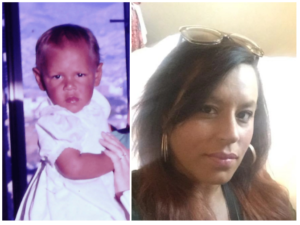
When I tell people that I run a blog sharing my story as an adult adoptee, the reply is oftentimes a big smile and something along the lines of “That’s wonderful!”. This, in turn, is often followed by some version of sharing their own connection to adoption, in the form of a friend, family member or just having thought of adoption.
What pretty much all replies have in common is that they are usually based on the idea that adoption is good and something to celebrate.
I do not write about all the good things about adoption, and I do not celebrate it. Here are 6 reasons why:
1. Loss
As adoptees, we are many times expected to be grateful for what adoption is said to have given us. A family, a future, a [better] life, to mention just a few in a long list of things people are quick to recite. What becomes apparent very quickly when speaking with adoptees across the board and from different life experiences, is that loss is also at the very core of any given adoption story.
Adoption is preceded by the child losing his or her mother. Losing your mother! Think about that for a second. Think about what it would mean to you, what it has meant to you, or just what it must mean, to lose one’s mother.
What is extremely important to realize is that for the child, this loss is not usually healed with simply replacing the mother. Any more than a parent’s loss of a child would be healed by simply replacing said child.
This loss will need grieving. The loss is real for the child who loses its mother, regardless of reason for said loss. For the child, the mother ceases to exist. It is as if she dies. And that is true also for the child who later does not remember.
Adoption involves a tremendous amount of loss. Loss that should not be brushed aside or left unrecognized. Loss that should not be dismissed. Adoptees need room for the loss we have suffered and survived.
And we need people to understand that if said loss can be avoided, it absolutely should.
Therefore, adoption should be far down on a list of possible alternatives to make sure no child will have to suffer the loss of their mother. If adoption does become the only necessary option left, it seems absurd to me that adoption in and of itself is something we celebrate as if it is the antidote to said loss.
In addition to this, depending on what kind of adoption we are talking about, many adoptees lose subsequent caretakers along the way, their family, their origin, their culture and even part of themselves.
The amount of loss that a child has experienced once the adoption takes place calls for people’s compassion and ability to hold space, rather than their wish to celebrate adoption.
2. Trauma
The loss mentioned in the previous point is traumatic for a child. It has taken me well into my adulthood to a) realize, and b) label my experience of losing my mother accurately, and for what it is; early childhood trauma. Along with her I also lost family, origin, language, culture, and representation, no small things to lose.
In her book “The Primal Wound”, Nancy Verrier argues that when children are separated from their mother, as in the case of infant adoption, the rupture of the bond between mother and child causes a wound in the child, a primal wound. This wound can have consequences on a child’s mental and emotional health that ripples throughout their entire life to follow.
In addition to this, Dr Paul Sunderland speaks of adoption as relinquishment, in his lecture called Adoption & Addiction. He argues that once an adoption takes place, many children are likely to have been through not just one relinquishment, but several. And that this is a form of Developmental Post Traumatic Stress Disorder. He argues that talking about adoption is denial of that relinquishment.
For children, whose home for one reason or another is not a safe environment, trauma can present in many ways, before, because, and after losing their mother.
Just like the presence of loss, the presence of trauma, be it from the loss itself, or from other elements in the child’s life, is so intricate and built into a child’s adoption story that denying it or leaving it out when talking about adoption has the risk of setting up both adoptive parents and adoptees for utter failure as they try to navigate life and relationships within the family, with one particularly important piece of the puzzle missing.
The amount of trauma that a child has experienced once the adoption takes place calls for people’s compassion and ability to hold space, rather than their wish to celebrate adoption.
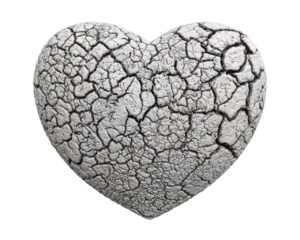
3. False Narrative
To talk about adoption leaving out the loss and the trauma that any given adoptee has suffered before, or because of, the adoption, is to engage in a false narrative. Many people are not aware that they do this when they smile big and say, “that’s wonderful”, in response to me saying that I write about adoption from an adoptee’s perspective.
The false narrative of adoption is for example the idea that “a mother loves her child so much she gives the child up”, that “children are so young they can’t remember anything if adopted as infants”, that “adoption gives a child a better life”, that “an adoptive family is just like any other family’, and other hallmark phrases like these.
The idea of adoption as something exclusively positive, or at least with the scale tipping to the positive side, is made possible by things like Positive Adoption Language (PAL). I recently wrote a piece about the language used by adoption agencies, and their push for PAL. You can find and read that article HERE.
The dangers with the false narrative and the positive adoption language are that it invalidates the full experience of the adoptee, and more importantly, that it leaves people unprepared and unable to listen to adoptees who speak of the struggles with adoption, the dark sides of adoption and their own lived experience as something that contradicts the belief that adoption is “wonderful”.
If people were to realize and accept that what they have been told about adoption is a false narrative that benefits anyone but adoptees. Even if some adoptees have good lives and were saved by adoption, there are far too many adoptees who will reject the narrative and who are hurt by it.
With that in mind, I hope more and more people can open their eyes and hearts to understand and start listening and work on the ability to show compassion and to hold space for adoptees, rather than celebrating adoption.
4. Gaslighting
All this combined, leads to an enormous amount of gaslighting, for the adoptee. Some of us speak up anyway. Many do not.
I grew up unaware that much of what I felt many other adoptees also felt. Meaning, I was far from as alone as I felt most of my life. I think it would have been a comfort to know. From the signs on billboards announcing adoption as an alternative for the woman who finds herself pregnant unexpectedly, to the label of “angry adoptees”, the propaganda and positive narrative go so deep that most people are unable to meet an adoptee who says that adoption has been a source of their struggle, that adoption has brought them suffering and that adoption is not something they are grateful for.
The negative[adoptees] become the enemy and adoptees are often silenced one way or another. It can be anything from the response mentioned above, to
“not all adoptees”,
“would you rather have been aborted?”,
or “but what is the alternative?”,
all based on the faulty assumption that adoption is somehow desperately necessary and the only available choice.
The gaslighting happens within families, where adoptive parents are unable to hold space and allow their adoptee child (or adult for that matter), explore and express their full experience as an adoptee.
The gaslighting happens in society at large, in the ways mentioned above, and by media continuing to portray adoption as inherently good, without questioning its existence, its reasons and its effects.
As adoptees, many of us are not always aware of this gaslighting, so we go along all the while feeling something is off. But, to speak up is difficult and exhausting both mentally and emotionally. Going against the stream has the risk of causing us to be isolated and rejected, something many adoptees fear more than anything. So, the gaslighting works. It keeps many of us quiet and lets people believe that those who do speak up are an exception that can and should be ignored.
The amount of gaslighting present in most adoptee’s lives, because of people being unable to recognize the loss, the trauma, and the false narrative, calls for people’s compassion and ability to hold space, rather than their wish to celebrate adoption.

5. Mental Health
When it comes to mental health issues, adoptees are overrepresented in the statistics(*), yet you might be surprised to find out to what degree many of us struggle in silence and loneliness.
The number of adoptees who struggle with PTSD, CPTSD, anxiety, depression, and other mental health issues are not widely known. When we see adoption as a destination and solution, rather than part of a societal problem and a step in a process that included loss, grief, and trauma, we are not able to understand its role in mental health issues for the adoptee. The two become separate issues, when for many of us, adoption and mental health are in fact very much intertwined.
The mental health issues many adoptees struggle with cannot and should not be separated from the adoption but need to be included in the mainstream conversation about adoption.
A wonderful resource I would like to share here is a project that a fellow adoptee of mine, Jessenia Parmer of I Am Adopted, started in November of last year, called #adopteementalhealthstories on Instagram(**). She invited adult adoptees to share their experience and struggles with mental health, to raise awareness on this topic.
It is not about making adoption look bad, make the adoptive parents seem like their failing, or make the adoptee feel bad in any kind of way. The purpose is the very opposite. Instead of sweeping the truth under the rug, by addressing it, by labeling it, and by talking about it honestly, we can start finding ways to make the changes needed to the adoption process and offer the support needed to adoptive families and to adoptees.
In addition, for many adoptees, the lack of medical history from our genetic family and background, leave us unaware of any possible predispositions to physical and mental health issues. We exist in a medical vacuum, with no compass in either direction.
The mental health issues that many adoptees experience because of any of the points mentioned above calls for people’s compassion and ability to hold space, rather than their wish to celebrate adoption.

6. Suicide rate
It is not an easy subject. I can understand that many adoptees, and many adoptive families would rather look the other way and not enter the conversation about suicide among adoptees. But as with the points mentioned already, not talking about it and trying to silence those who do, does not make it go away for the people who do suffer with it. It only further isolates them in their pain.
Suicide attempts is another field where adoptees are overrepresented in the statistics.
1 in 4 adoptees attempt to die by suicide (**). Unrecognized loss and trauma. Silenced through gaslighting, referencing a false narrative. Struggles with mental health that are not understood or recognized as part of and connected to adoption.
This leaves many adoptees in a state of internal loneliness and isolation that is hard to explain.
Many of us express living with a constant sense of survival mode where the fear of rejection dictates much of how we behave and how we interact and relate to the world and people around us. When that world and those people do not know to validate our feelings, our experience, or even just us, the isolation, or feeling of not being able to “just be grateful”, the guilt and shame can become very heavy.
Combine this with a flawed sense of our medical history to check for mental illness, a family or society that is unwilling or unable to understand why an adoptee might suffer, and people praising adoption every turn, and you have a few of the possible ingredients to the reality for many adoptees.
I imagine that since the view on adoption is skewed to the positive side, the research on adoptees, adoptees and mental health struggles and adoptees and suicide needs more attention. It is out there, but it is not as widely known as it should be.
The alarming suicide rate among adoptees as compared to non-adoptees, and in and of itself, regardless of exact combination of factors, calls for people’s compassion and ability to hold space, rather than their wish to celebrate adoption.

As with everything else that I write on this blog and share across different platforms, I do not speak for all adoptees. Our stories and experiences vary and are all unique. I am happy for those adoptees who have had wonderful lives and who are grateful for their adoption.
That said, I think it is especially important, for those who do suffer, and those who do struggle, that we start examining the practices of adoption, the reasons it exists, and who it benefits the way that it exists today. And more important than anything, I think it is crucial that we can listen to ALL adoptees, even those whose adoption has not saved them but furthered their pain.
And I believe that a big part of that answer is in people being able to hold space for the adoptee in their life.
I thank you from the bottom of my heart, for spending this time with me here on This Adoptee Life. Please, don’t hesitate to reach out with questions or comments.
Thank you for showing up, for yourself, and for others.
To all my fellow adoptees,
PS. We are all in this together.
Love to you all,
Amanda
(*) Link to resource cited on mental health HERE
(**)Link to Adoptee Mental Health Stories HERE
(***) Link to resource cited on suicide HERE
Definition of the term Holding Space “…means to be with someone without judgment. To donate your ears and heart without wanting anything back. To practice empathy and compassion. To accept someone’s truth, no matter what they are. To allow and accept. Embrace with two hands instead of pointing with one finger. To come in neutral. Open. For them. Not you. Holding space means to put your needs and opinions aside and allow someone to just be. Her. Self.” Full article HERE.
Amanda Medina
About Us
This Adoptee Life is a place where adoptees can explore their story, share their experience, and express what they’ve lived through—supported by a community that understands.

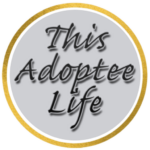


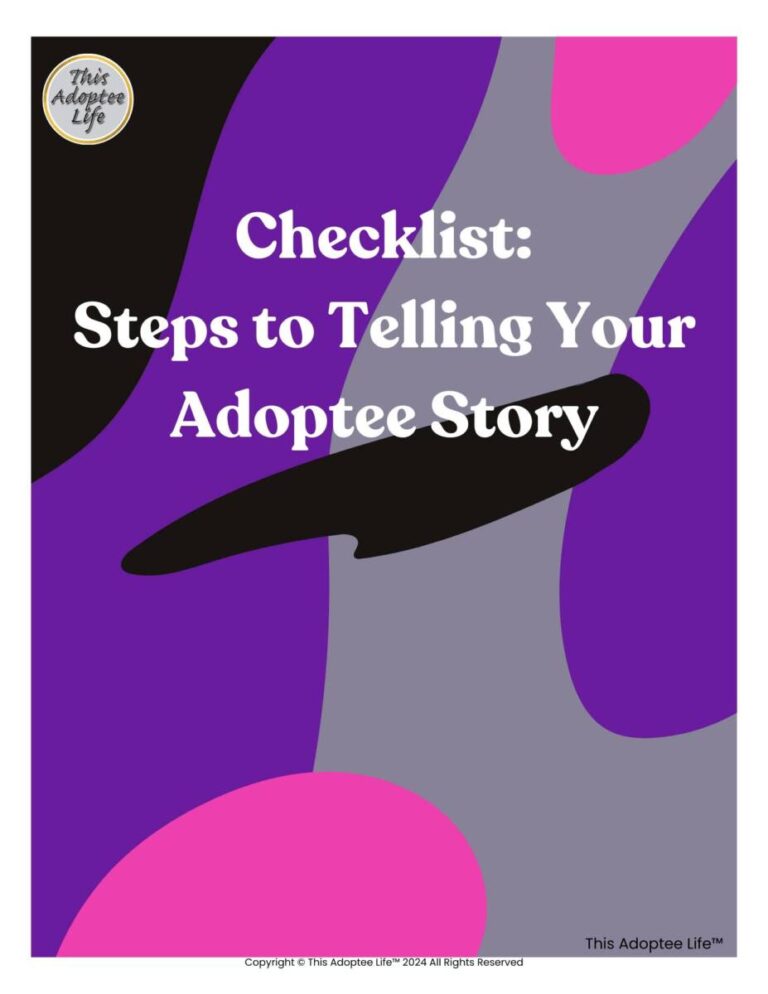
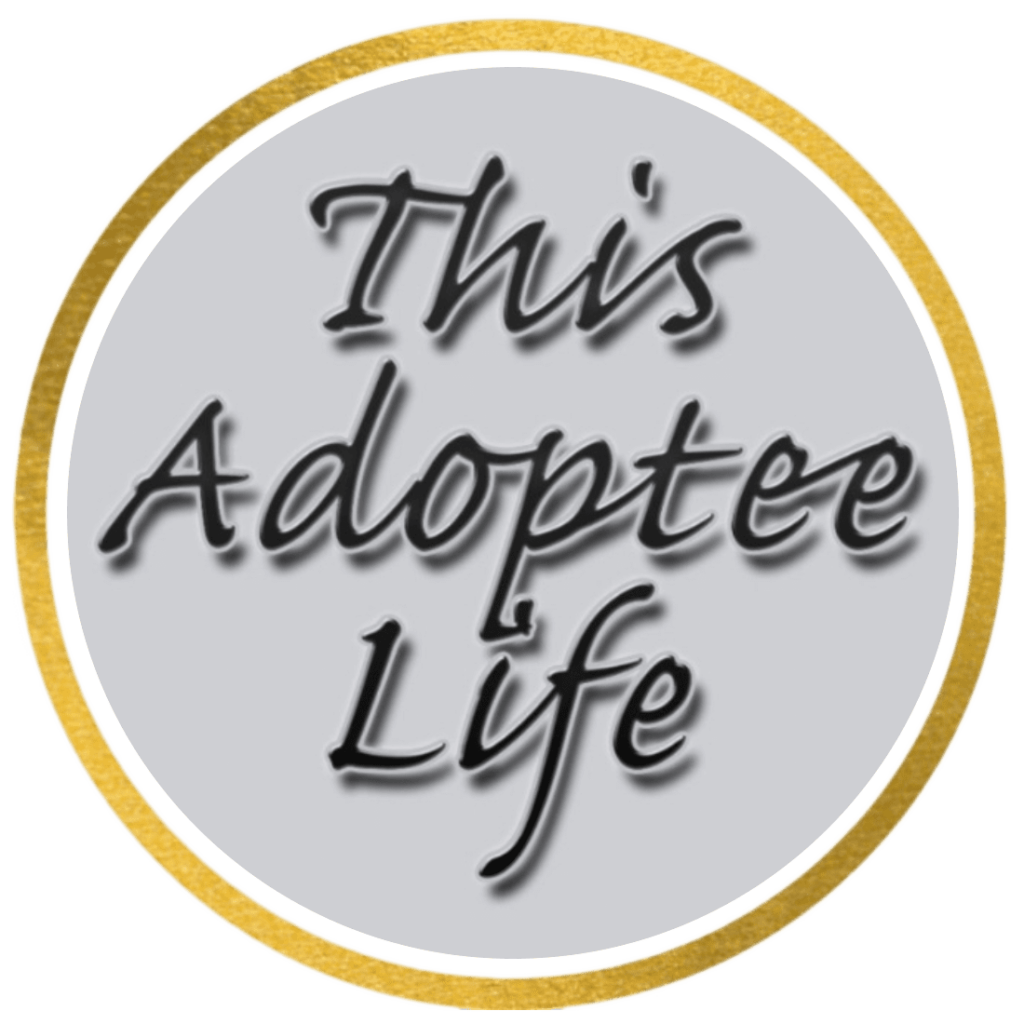
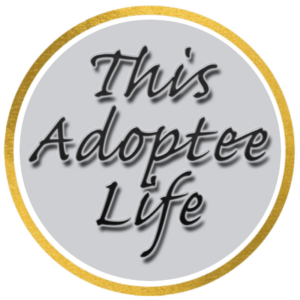
3 thoughts on “Adoption and Awareness: 6 Reasons NOT to Celebrate Adoption”
Thank you for this post. I too write a blog on adoption and am currently in the process of writing a book of my story and how I have overcome many of the things you discuss in this post. Lets keep spreading the word for what it is “relinquishment and abandonment” no matter how “good” our life is, we filter through that lens. Blessings Joy
VERY THOROUGH REPRESENTATION OF ALL ASPECTS OF ADOPTEES ISSUES WITH THEIR ADOPTION. I am a 61 year old adoptee who is an identical twin and raised with my sister. I write about finding out who you are and where you come from on my website: https://www.juliemcgueauthor.com. Let’s keep finding our voices and enlightening the community.
Thank you so much for your comments and your work. As someone who has considered adoption but not been entirely comfortable with it, what you are writing is putting more and more clarity to why I was uncomfortable and the reasons not to adopt, especially through international infant adoptions. As a psychologist, I also really appreciate your emphasis on the mental health concerns and the thoughtful discussion of the issues that adoptees face. (One point though, the article you cite about suicide attempts found that adoptees were 4 times more likely to attempt suicide than non-adoptees, not that 1 in 4 attempted suicide – the numbers are still horribly high, but not quite that horrifically high.) There is a clear need for better education about adoption and mental health resources for adoptees and the parents who lose their children to adoption. Thank you.